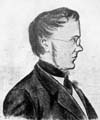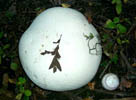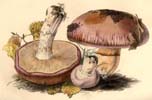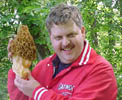I use this term for a botanist or mycologist with a medical degree, which was usually the only way a would-be botanist could acquire any advanced training. Until the 20th century was well underway, it was very unusual for a European university to grant advanced degrees in botany (and mycology still is, for the purposes of degrees and university departments, considered a branch of botany). The only venue for graduate study in botany, especially scientific study, was in medical schools, where botanists were professors of medical botany, theoretically responsible for knowledge of alkaloids, other natural drugs, and the plants responsible for them; and the medical school was also the only place where a botanist might find an appointment in academia. Things were a little better in this country, as we started creating A & M colleges in the mid-1880s, but all in all the situation was similar to that of Galileo, whose actual job was professor of astronomy in the University of Bologna medical school, where he taught future doctors how to read their patients' horoscopes. In any case, mycologists before 1900 or so who wanted advanced training (and certainly any who wanted a degree to prove that they had advanced training) had to do it by getting a medical degree. Hence we get ridiculous-looking things like Patouillard turning in his classification of genera of fungi as a thesis for a degree from the University of Paris' school of pharmacy. Most of these people never actually practiced medicine on people (although some of them did). I have adopted a British term, "medical man", to identify mycologists who got their advanced training through a medical degree.
Back to top











